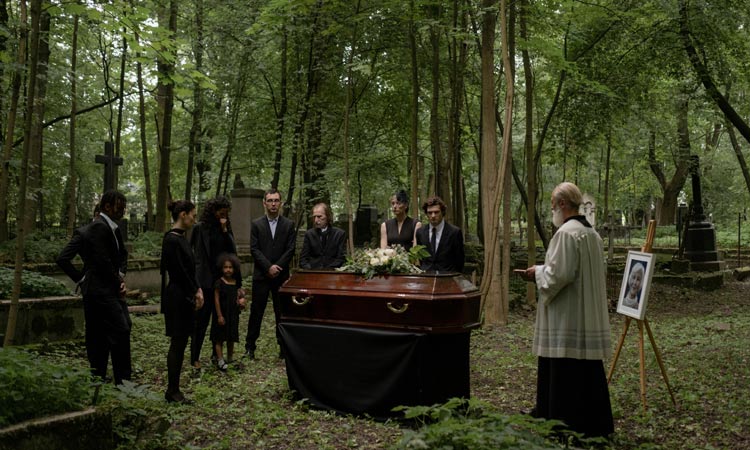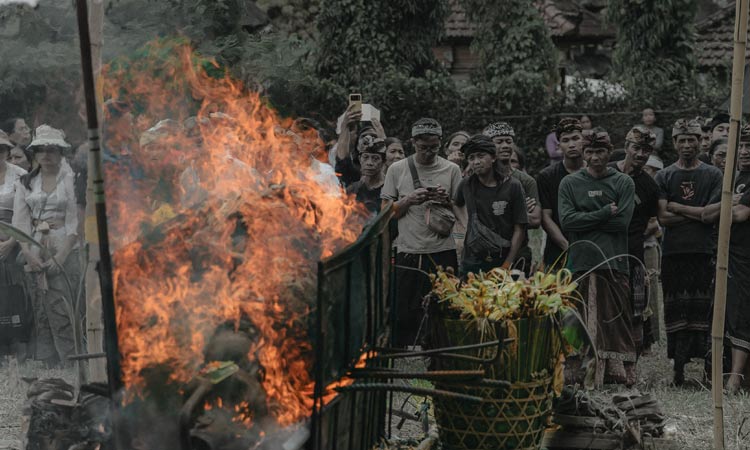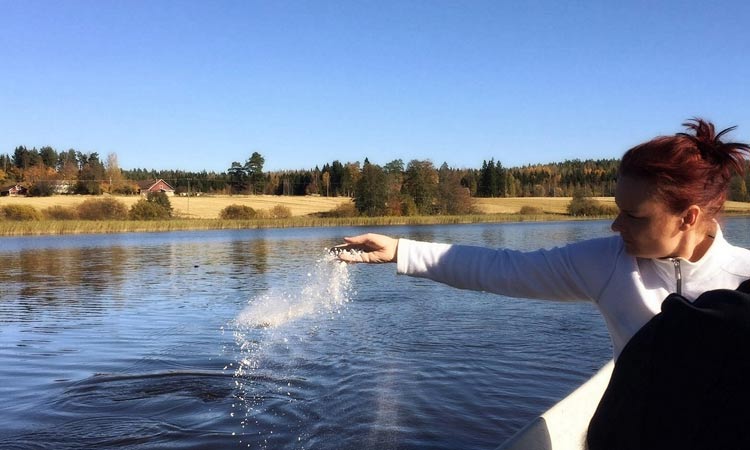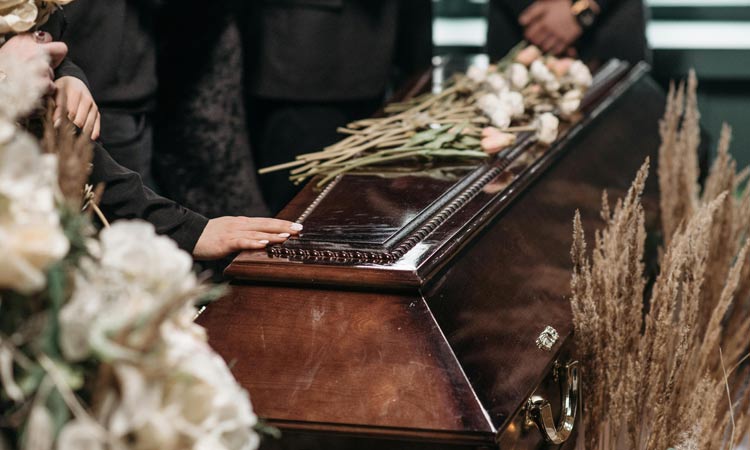Cremation Vs Burial
When it comes to funerals, a series of events is needed to honor and remember departed individuals, giving them a structured moment for family and friends to gather and offer their tributes. These services often include decisions about cremation vs. burial, which are influenced by specific rituals and customs that can vary based on cultural, religious, and personal beliefs.
Components of a Traditional Funeral
A funeral service normally includes some important key events that mutually create a respectful and heartfelt farewell. These elements commonly include:
- Wake or Visitation: This happening allows loved ones to see the deceased’s body and give the family of the deceased condolences to the family, normally it takes place at a funeral home or in the family home.
- Funeral Ceremony: This is the event where they hold worship either in the funeral home, or graveside. This “celebration of life” is the most essential part of every traditional funeral. It takes in readings, songs, and eulogies that may incorporate traditional practices.
- Committal Service: When we talk about burial service, this event occurs at the graveside where final prayers and blessings are taken in, and the deceased are laid to rest.
- Reception or Repast: A traditional funeral reception is an event where all attendees gather and share memories and offer care for the loved ones of the deceased while enjoying refreshments.
Planning a Traditional Funeral
When it comes to planning a funeral some steps need to be considered and hold a sentimental value that reflects the life of the deceased:
- Selecting a Funeral Home: Seeking suggestions from a knowledgeable, and professional funeral service who will guide you all the process.
- Choosing the Service Type: Determining which services it will be, whether religious or blend, but based on the decision of the deceased family.
- Arranging the Details: Selection of caskets, floral displays, music and reading the tribute about the life of the departed individual.

Benefits of a Traditional Funeral
Determining the traditional funeral can bring various benefits:
- Closure and Healing: The arrangement of a traditional funeral can give a sense of cessation, helping families and friends to begin their closure to the departed individual.
- Community Support: This is a ceremony in which all families and friends gather together to give tribute and support in times of sorrow.
- Honoring the Deceased: In a funeral tradition, honoring the deceased allows tribute through favorite music that commemorates the life of the departed individual.
Considerations for Traditional Funerals
If traditional funerals are beneficial to others, there are reflections to keep in mind:
- Cost: Choosing a traditional funeral can be costly, it involves the cost of embalming, choosing the best caskets, and other services required for a funeral.
- Environmental Concerns: For those who are concerned with our environmental aspects, embalming, and burial is a consideration for our ecological sustainability.
- Cultural and Personal Preferences: People have different ways of doing funerals, and they prefer alternative ways based on their own culture and beliefs.
Understanding the components and considerations can help individuals decide the best choice for honoring their loved ones.
Understanding Cremation

The Cremation Process
Cremation has emerged as a popular choice for many individuals, as it offers a way to reduce the human body to its utmost simple elements through the intensification of heat and evaporation. This process typically involves placing the body in a fully-combustible container, which is exposed to the highest temperature from 1,400 to 2,000 Degrees Fahrenheit inside the cremation chamber or retort. This procedure often lasts two hours, depending on the body’s size and the specific equipment that is used, resulting in what is commonly known as “ashes,” still they primarily come from bone fragments.
Types of Cremation Services
There are other options and types for cremation, basically catering to different preferences and requirements.
- Traditional Cremation: This service allows you to view and visit before the body is cremated, normally the body is placed in a casket either bought or rented.
- Memorial Cremation: The ashes are displayed in a cremation urn during a memorial service at the location that holds services. It occurs after the body is being cremated.
- Direct Cremation: It is the process where the body is cremated shortly after death without any formal funeral or memorial service. It is the most straightforward with the low cost of cremation.
- Cremation for Scientific Purposes: Others choose to donate their body organs to science, where they will be useful for research. After removing the donated organs their body is cremated.

Benefits of Cremation
It has been determined that there are several advantages in choosing cremation. The average cost of cremation is less than traditional burial because it often eliminates the need for embalming, caskets, and general burial plots. Additionally, cremation also gives flexibility in how and where the remains are handled post-cremation. Whether they are placed in an urn scattered at a location, or transformed into artwork, or laid to rest in a post-cremation burial. When it comes to “eco-friendly,” like alkaline hydrolysis also known as bio-cremation, they use water and alkali instead of flame. This option reduces carbon emissions making it environmentally friendly.
Considerations for Cremation
Opting for cremation involves vital considerations that you should take into account. The procedure is irreversible, some find it more conventional than traditional burial, which sometimes conflicts with personal beliefs or religious beliefs. Moreover, while cremation is more environmentally friendly than burial process, it still consumes and releases carbon dioxide. When exploring options, choosing a trusted cremation company in UAE is essential to ensure the process is handled with dignity, legal compliance, and cultural sensitivity. Hence understanding all aspects of cremation is vital for making decisions that align with your moral needs and those of your loved one.
Making the Right Choice: Factors to Consider in Cremation vs Burial
Saying farewell to a loved one is certainly one of the most difficult experiences you will encounter. Amid the sorrow and loss, choosing the right decision between cremation and burial can seem irresistible. It’s very important to think wisely in this decision with compassion and dedication, ensuring the ceremony is meaningful. Here are some key factors to keep in mind that can help you in making your personal decision.
Personal Beliefs
Your beliefs or your loved one plays a crucial role when it comes to deciding between cremation vs burial. These beliefs might be religious, spiritual, or based on personal opinions about the life after death, in handling the physical body after death.
Family Preferences
Family members need to get together in times of sorrow, it’s essential to communicate openly about their perspective on the funeral and give wishes to the deceased. This gathering can help understand each other’s point of view and choose the best decision for both the deceased and the family. Always remember that in funerals you need to give a space to mourners as much as possible and remember as they are about to honor the deceased.
Financial Considerations
Traditional funeral services can be costly, but setting a budget and exploring different options can effectively control costs without sacrificing the essence of the service. Engage with funeral homes to discuss pricing alternatives and consider options that align with your financial circumstances. It’s crucial to recognize that the significance of a funeral lies in its meaning not its expense. Choices such as direct cremation or modest burials can notably lessen expenditures while still offering a noble farewell.
Environmental Impact
Considering the environmental impact of your chosen parting method is another issue to consider. Traditional burials normally involve embalming, which also uses chemicals and non-biodegradable caskets. Although cremation is less resource-intensive, still consumes energy and emits carbon dioxide.
Final Thoughts and Resources (Burial vs Cremation)
Upon reflecting of the discussions about the choice between cremation vs burial, it becomes evident that deciding between these methods of bidding farewell to a loved one involves numerous factors. These include personal beliefs, family preferences, and environmental concerns, and financial implications. Each option offers distinct advantages and challenges, from the formal structure and closure provided by the traditional funerals to the flexibility, affordability, and environmental advantages associated with cremation. Ultimately, the choice is deeply personal, necessitating contemplation of the values and desires of both deceased and their surviving loved ones.
FAQs
Why do many people choose cremation over traditional burial?
Cremation is becoming more popular for its environmental benefits, and as more religions accept it, even more people are opting for it. The way families think about cemetery plots is changing, contributing to the decline in traditional burials.
What are the advantages of choosing cremation compared to burial?
Cremation frequently offers families greater flexibility to personalize memorials for loved ones and tends to be more cost-effective compared to burial. In contrast, traditional burials which have more average cost, generally have a smaller environmental impact
How does a traditional funeral differ from a cremation?
Cremation rapidly reduces the body to ashes within hours, whereas traditional burial involves a slower, natural decomposition process. Generally more cost-effective, especially in direct cremation, cremation typically avoids the need for embalming compared to traditional burial.
What is the Biblical perspective on burial versus cremation?
In historical times depicted in the Bible, burial was the prevalent practice and generally favored. But the Bible does not explicitly forbid cremation, it implies that cremation was considered as suitable only in rare or exceptional situations.
What are Green Burials?
A green burial is an eco-friendly alternative to traditional burial that emphasizes returning the body to the earth naturally, without the use of harmful chemicals or non-biodegradable materials. The body is typically placed in a biodegradable casket or shroud, and embalming is avoided to prevent soil contamination. Green burials take place in natural or conservation burial grounds, which are often left in a natural state, promoting land conservation and wildlife habitat. By foregoing concrete vaults, elaborate caskets, and energy-intensive processes, green burials offer a lower environmental impact and often align with personal values of sustainability and simplicity.


